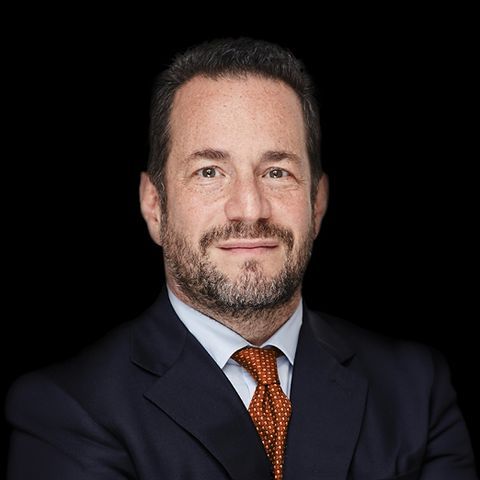Alerts
SEC Charges Fund Manager for Improper Cross Trades
April 8, 2019
On March 15, 2019, the U.S. Securities and Exchange Commission charged a private fund manager and its former chief operating officer with manipulating the price of an asset sold by one client to another. The SEC’s orders[1] charge Talimco LLC (“Talimco”) and its former Chief Operating Officer Grant Rogers with breaching their fiduciary duties in violation of the anti‑fraud provisions of the Investment Advisers Act of 1940 (“Advisers Act”). This action exemplifies the SEC’s continued focus on cross trades and on internal controls relating to conflicts of interest.
Alleged Misconduct
Talimco was the collateral manager and investment adviser to several collateralized debt obligations (“CDOs”) and also served as the investment adviser to a private fund, all of which invested in commercial real estate assets. The CDOs owned participations in certain mortgage loans and, after the underlying loans went into default, Talimco sold the majority of the participations from the CDOs to the fund.
The SEC found that Talimco and Rogers owed the CDOs fiduciary duties, specifically including an obligation to seek to maximize the price obtained for the loan participations. Under the CDOs’ governing documents, bids from three independent market makers were necessary to sell a participation but, with respect to the final participation held by one of the CDOs, Talimco did not seek out multiple bona fide bidders. Talimco, rather, caused the fund to tender a bid and convinced two third-party bidders to participate in the auction by assuring them that they would not win the auction. As a result of these actions, the fund was the highest bidder and acquired the loan participation.
The fund later sold all of the participations for a substantial profit, resulting in Talimco receiving performance and management fees and Rogers personally profiting by the increase in value of his interest in the fund. Talimco’s and Rogers’s conduct deprived the CDOs of the opportunity to obtain multiple bona fide bids for the loan participations and, potentially, to maximize its profit. In addition, Rogers personally invested in the fund after the fund received bids on the participations exceeding the price the fund had paid, indicating that the fund was likely to realize a substantial profit.
The SEC’s orders found that Talimco and Rogers violated Section 206(2) of the Advisers Act.[2] Talimco consented, without admitting or denying the SEC’s findings, to a cease-and-desist order, a censure, disgorgement of its fees and a penalty of $325,000. Rogers, who also neither admitted nor denied the findings, consented to a cease-and-desist order, a 12-month industry suspension and a $65,000 fine.
Key Takeaways
The SEC continues to focus on conflicts of interest as an examination priority and, in this case, it was an examination by the Private Funds Unit of the Office of Compliance Inspections and Examinations (“OCIE”) that led to the SEC’s investigation into Talimco and Rogers.[3]
Cross trades can create conflicts of interest because fund managers owe a fiduciary duty to both clients to seek best execution for both clients. The Talimco order unambiguously states: “as the investment adviser to both the seller and buyer of the asset, Talimco had a conflict of interest.” Accordingly, fund managers causing clients to engage in a cross trade should carefully analyze and appropriately document the basis for the transaction as a whole and for the related determination that the cross trades are in the best interests of both client.
Although this case involved allegations of manipulation, the Advisers Act’s anti-fraud provisions only require the SEC to show negligence to establish liability. Fund managers should therefore:
- When dealing with illiquid securities, where the determination of price is a key factor, have a documented, reasonable and defensible valuation determination; and
- Seek to ensure consistency between their on‑the‑ground valuation practices and their disclosures in Form ADV and in any offering documents, which should contain clear and detailed explanations of such practices.
The SEC has filed several enforcement actions over the last few years targeting cross trades. Fund managers should expect that such scrutiny by the SEC will only increase as this continues to be an area of focus in exams and inspections. Accordingly, fund managers should evaluate and update, as appropriate, their policies and procedures surrounding cross trades and valuation and effectively document the analysis of such practices.
This case also shows that personal liability continues to be a focus of the SEC’s enforcement efforts. In particular, the order against Rogers highlights the fact that executives and control persons of investment advisers can be charged personally with primary violations of the Advisers Act. The timing of Rogers’s personal investment in the fund — when he was aware of information indicating that there was likely an upcoming increase in the value of the fund — is particularly noteworthy.
Authored by Craig S. Warkol, Marc E. Elovitz, Brian T. Daly and Akshay Ramanan.
If you have any questions concerning this Alert, please contact your attorney at Schulte Roth & Zabel or one of the authors.
[2] 15 U.S.C. § 80b-6.
[3] OCIE has identified “Conflicts of Interest” as a key examination priority as part of their 2019 Examination Priorities report. Available here.
This communication is issued by Schulte Roth & Zabel LLP for informational purposes only and does not constitute legal advice or establish an attorney-client relationship. In some jurisdictions, this publication may be considered attorney advertising. ©2019 Schulte Roth & Zabel LLP.
All rights reserved. SCHULTE ROTH & ZABEL is the registered trademark of Schulte Roth & Zabel LLP.



